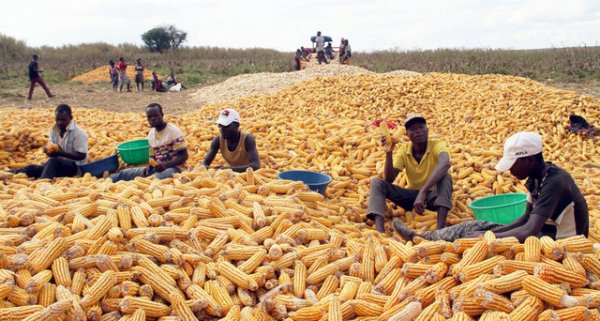In an interview with Lusa from Lagos, Nigeria, Osaruyi Orobosa, vice-president of the entity coordinating the Lobito economic corridor project, said that this infrastructure, which connects the port of Lobito, in Angola, to Zambia, and the Democratic Republic of Congo (RDCongo), modernizing the part of the railway that already exists and expanding it, "will boost economic activity", and not just the mineral sector in which the three countries are rich.
"There are mines that were previously not viable because they did not have a viable disposal plan, and that is why they closed, and now they can open again. But Zambia is a country very rich in agricultural products, such as soybeans and corn, raw materials with great commercial potential and which can easily benefit from the Lobito economic corridor to move agricultural goods, which we expect to represent at least a third of the cargo", he said.
The railway line between Lobito and the border with DRCongo has been built since the beginning of the 19th century, but required substantial improvements to allow for more efficient operation, he explained, remembering that this section is already under concession to three companies, including the Portuguese Mota-Engil.
"This project is called Lobito 1, which goes from Lobito to the border with DRCongo, and from there to Kolwesi, using MSC, the state railway company, which could be one of the biggest platforms for cobalt and copper from mines in the region", explained Osaruyi Orobosa, pointing out that from there the line would continue south, towards Zambia.
"All of this creates an economic corridor that connects the three countries, and which in the future could be extended to Tanzania, offering a link between the Atlantic and Indian oceans, which could serve not only to transport the region's raw materials for export , but also the commercial exchanges between countries in the region", added the leader of this project at AFC, coordinator of the railway transformation project to operationalize the Lobito corridor as a whole.
Among the examples of commercial exchanges, Osaruyi Orobosa also pointed out that Angola "will have a surplus of energy production" that it can export to other countries using this connection, which will also be used to "transport optical fiber using the same rights of way, which increases connectivity and has a major impact on the population".
The Lobito Corridor is the first strategic economic corridor launched under the aegis of the G7 Partnership for Global Infrastructure and Investment (PGI) in May 2023, which was followed by the signing of a joint declaration between the European Union (EU) and the United States of America (USA), on the sidelines of the September 2023 G20 Summit in New Delhi, in support of the development of the Corridor.
In October last year, during the Global Gateway Forum, the EU and the US signed – together with Angola, DRC, Zambia, the African Development Bank (AfDB) and AFC – a Memorandum of Understanding (MoU) to define the roles and objectives for the expansion of the Corridor.
This concession agreement was signed in September, placing AFC as the main promoter of the project that will connect the three African countries.
The railway line to be built within the scope of the signed agreements is expected to create economic benefits of approximately 3 billion dollars for countries, reduce atmospheric emissions by around 300 thousand tons per year, and create more than 1250 jobs during its construction and operations, is also highlighted in the text presented in New York, on the sidelines of the Future Summit.







